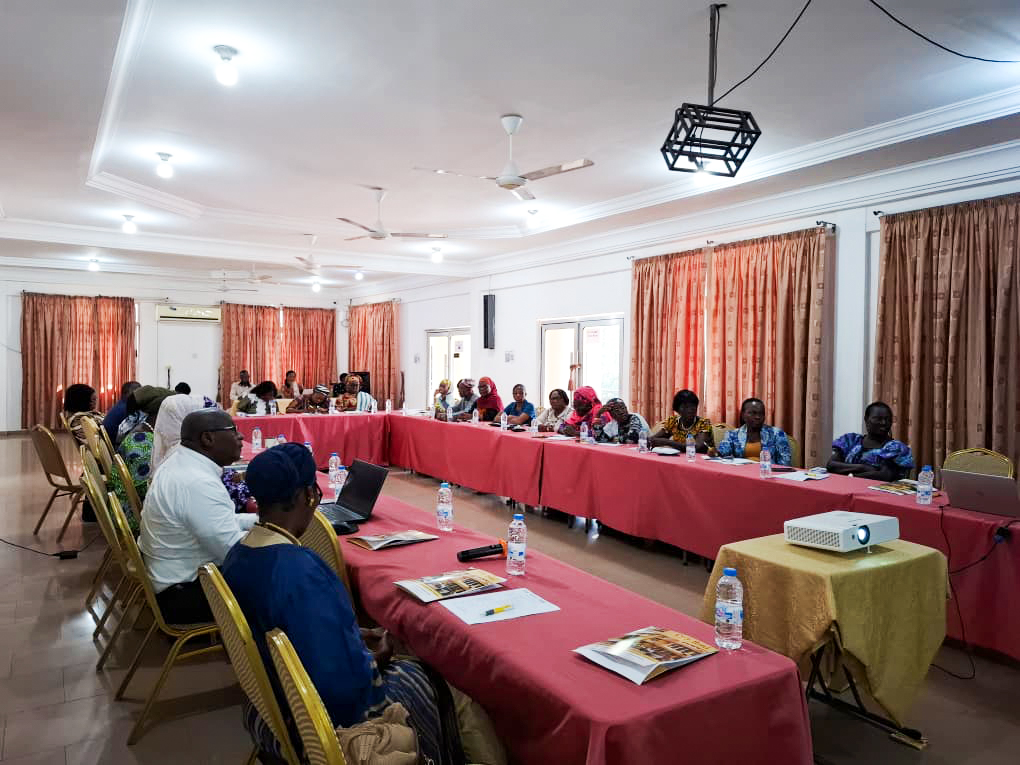The Foundation for Security and Development in Africa (FOSDA) has renewed its call for the meaningful inclusion of women in efforts to prevent and counter violent extremism in northern Ghana. Through the Strengthening Systems for Resilience Against Violent Extremism (SURE) Project, FOSDA seeks to reduce the vulnerabilities of communities and marginalized groups to extremist threats while fostering learning and collaboration on countering violent extremism across West Africa.
Empowering Women as Peacebuilders
Speaking at the consultative engagement at the Modern City Hotel in Tamale on 7th October 2025, FOSDA Executive Director Theodora Williams-Anti underscored the pivotal role women play in peacebuilding, mediation, and negotiation processes. She emphasized that their participation is not optional but essential to achieving sustainable peace.
“If women are invited to these ‘tables’, create your own table,” Mrs. Williams-Anti asserted. “We are creating tables for women to lead peace-building processes in their communities because when women are part of peace initiatives, Ghana will have more peace.”
The consultation meeting forms part of the SURE Project, implemented by FOSDA in collaboration with Star Ghana Foundation, the West Africa Centre for Counter-Extremism (WACCE) and with funding support from Foreign Commonwealth and Development Office (FCDO).
In her opening remarks, Madam Afi Azaratu Yakubu, FOSDA Board Member, commended the initiative and emphasized the urgent need to strengthen fragile border communities against rising extremist risks. She highlighted that the uniqueness of the SURE Project lies in its Women Peace Circle concept, which intentionally empowers women at the grassroots – from queen mothers and gender desk officers to market women and the most marginalized voices – as vital partners in building community resilience and early warning systems. Madam Afi further urged that the project be implemented strategically, inclusively, and collaboratively, to ensure lasting impact beyond its duration.
Collaboration for Cross-Border Learning
Representing Star Ghana Foundation, Mr. Frederick Yenbaar Nuuri-Teg noted that the project, which runs from August 2025 to March 2026, serves as a pilot phase to strengthen community-level peace interventions.
“We are not only nurturing women’s leadership in peacebuilding; we are also learning from neighbouring countries on how they address extremism,” he explained. “Our collaboration with the Ministry of the Interior and Regional Security Councils is helping to promote cross-border engagement with Burkina Faso and Togo on peace and security.”
Community Voices and the Role of Women
The consultation gathered all female members and Executive Secretaries of the targeted Regional Peace Councils in northern Ghana, alongside members of the Women Mediators Network of Ghana (WOMNET-GH) from across the northern regions. These women are not only respected figures in their communities but also key influencers who command trust and credibility at the grassroots. Their involvement is central to sustaining the Women Peace Circles, as they bring firsthand understanding of local dynamics and the commitment needed to drive lasting peace efforts within their communities.
Madam Semefa Asimenu, Head of Gender Desk at the National Peace Council, described the initiative as both “timely and transformative.”
“Empowering women as peacebuilders is not just a gender agenda; it is a security strategy,” she emphasized. “The Peace Council remains committed to supporting women who lead dialogue and reconciliation processes.”
Participants also highlighted the need to address the social and emotional dimensions of violent extremism. One participant observed, “A frustrated young man who turns to alcohol should not be seen as an outcast – he has a sister, a mother, and an aunt who must be part of his rehabilitation and support system.”
Towards Inclusive, Community-Based Peacebuilding
Discussions concluded with a collective commitment to strengthen community ownership of peace and security efforts. FOSDA and its partners pledged to engage market women, youth groups, and schools as key stakeholders in preventing violent extremism.
By providing platforms for women to lead, FOSDA is redefining peacebuilding at the grassroots level – one community at a time.
“When women lead peace processes,” Mrs. Williams-Anti concluded, “we build stronger families, safer communities, and a more peaceful nation.”
